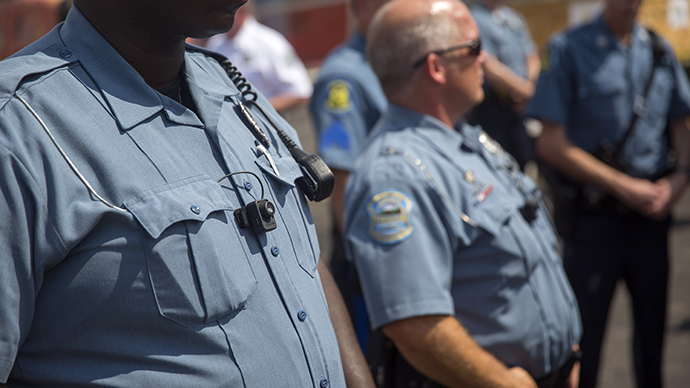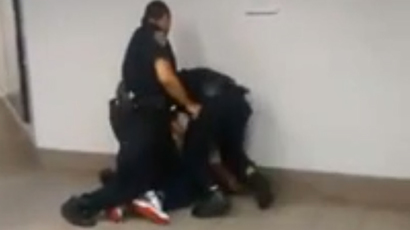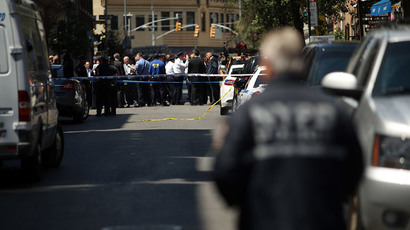NYPD to test body cameras on officers this fall

The New York Police Department announced it will start outfitting dozens of officers with body cameras this fall – an effort that could potentially see the entire agency embrace the technology.
READ MORE: Cop cam: Ferguson police to wear body cameras
The initiative will start out small – only 60 of the NYPD’s 35,000 officers will wear cameras during the pilot program – and will include a trial of two different types of devices. One camera can be pinned to the front of a shirt, while the other can be worn on an officer’s ear, glasses, collar, or shoulder.
It will cost $60,000 to launch the program, which is being provided by the nonprofit Police Foundation group. The costs for storing the recorded footage will quickly raise the bill, though it has not been decided just how that expense will be covered. It is also unclear how long the trial run will last.
The NYPD is so far the largest police department in the United States to employ cameras as part of its operation. The officers involved will be spread across precincts in Manhattan, Queens, Brooklyn, the Bronx, and Staten Island.
READ MORE: NYC police chokehold death proves need for cop-cams - public defendant
The devices will be able to record both audio and video, which NYPD Commissioner William Bratton suggests will benefit both civilians and police, as well as offer valuable evidence.
“The idea is the person understands that they are being recorded and there is an ability to test the veracity [of a person’s account] through the use of the camera devices,” Bratton said, as quoted by the New York Daily News.
“Sometimes, being quite frank with you, complainants lie – bald-faced lies. And I think, clearly, the officer, knowing that it’s being recorded – in most instances it will affect the behavior of the officers in a good way. I think he or she will feel it’s an additional protection for them,” he said.

Meanwhile, New York Mayor Bill de Blasio has welcomed the development in a joint statement with Public Advocate Letitia James, while noting that questions about the program still need to be answered.
“This pilot program will provide transparency, accountability, and protection for both the police officers and those they serve, while reducing financial losses for the city,” the statement reads.
Although a federal judge ordered a year-long experiment with cameras in 2013 – as part of a series of reforms intended to halt the controversial stop-and-frisk program – this effort is not quite associated with that directive. Since that order is pending, the NYPD is taking this step unilaterally, meaning it is drafting guidelines without the input of an independent monitor or the plaintiffs associated with the stop-and-frisk case.
As a result, the new announcement didn’t please everyone.
“This kind of unilateral decision on the part of the NYPD is part of the same uncollaborative, nontransparent, go-it-alone approach to police reform we saw with the prior N.Y.P.D. and mayoral administration,” Darius Charney, the Center for Constitutional Rights lawyer who represents the plaintiffs, told The New York Times.
Bratton defended the decision, though, telling the Times that it is “too important to wait.”
READ MORE: Thousands protest police violence in New York, call for justice in chokehold death
The move comes as the public continues to question the behavior of law enforcement in New York City, particularly over allegations of excessive force and police brutality. In late August, thousands of residents took to the streets to protest the death of Staten Island man Eric Garner, who was killed after police placed him in an illegal chokehold and forced him to the ground.
Garner’s death – ruled a homicide by the city’s medical examiner – was followed by the publication of several other instances of chokehold use by police, which prompted calls for reform.














